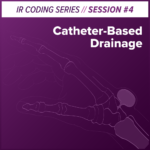
Navigating New Frontiers in Lower Extremity Coding: 0505T, 0620T, and IVL Expert Examination
Innovative endovascular techniques are driving major changes in lower extremity revascularization coding, adding complexity for even seasoned professionals. This is only part of intricate massive












